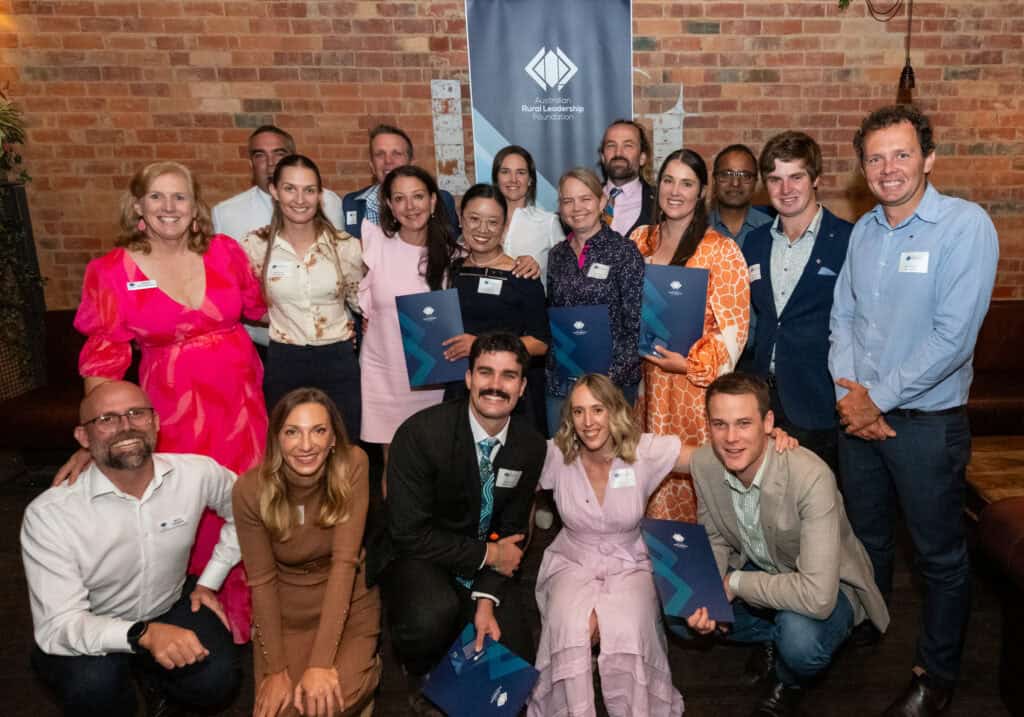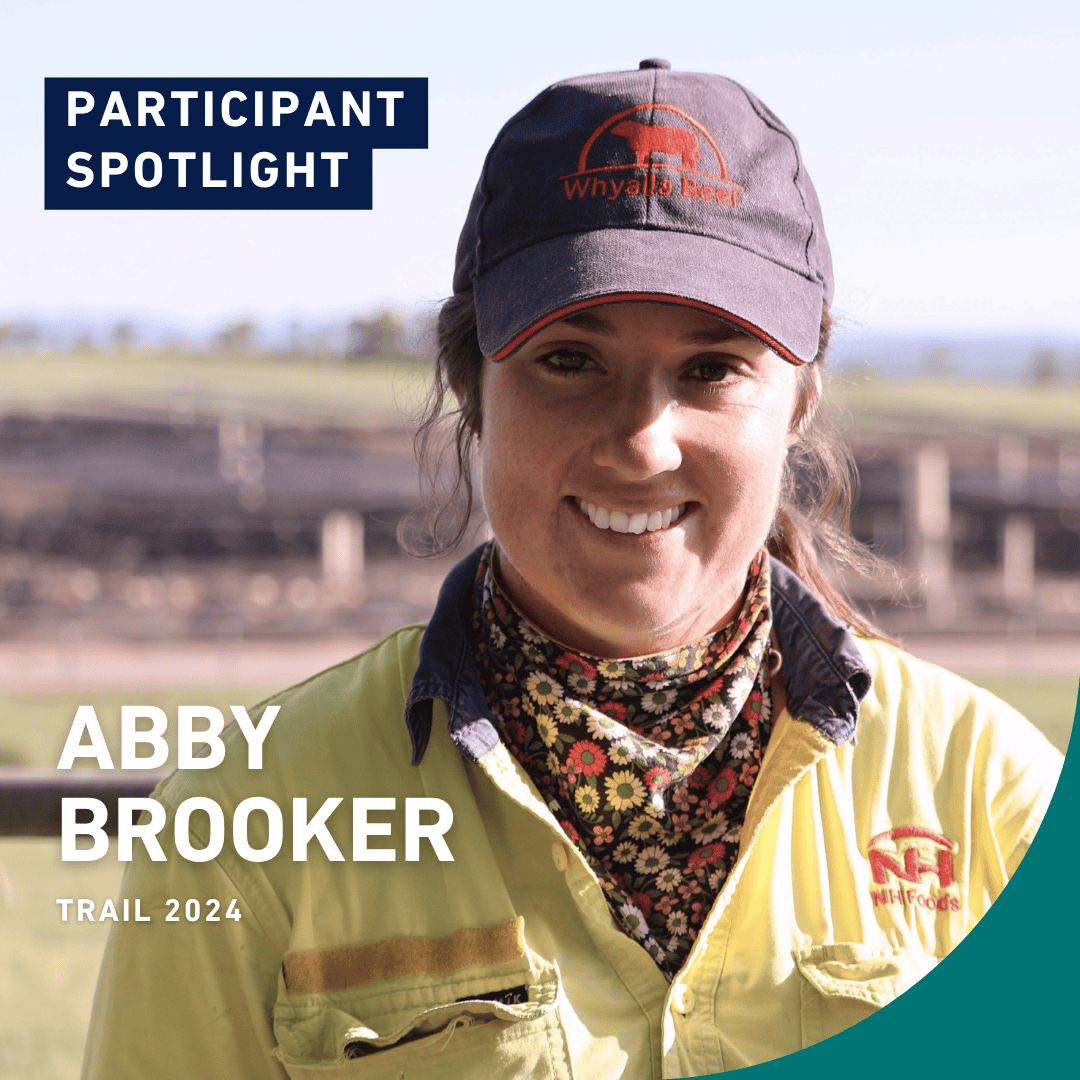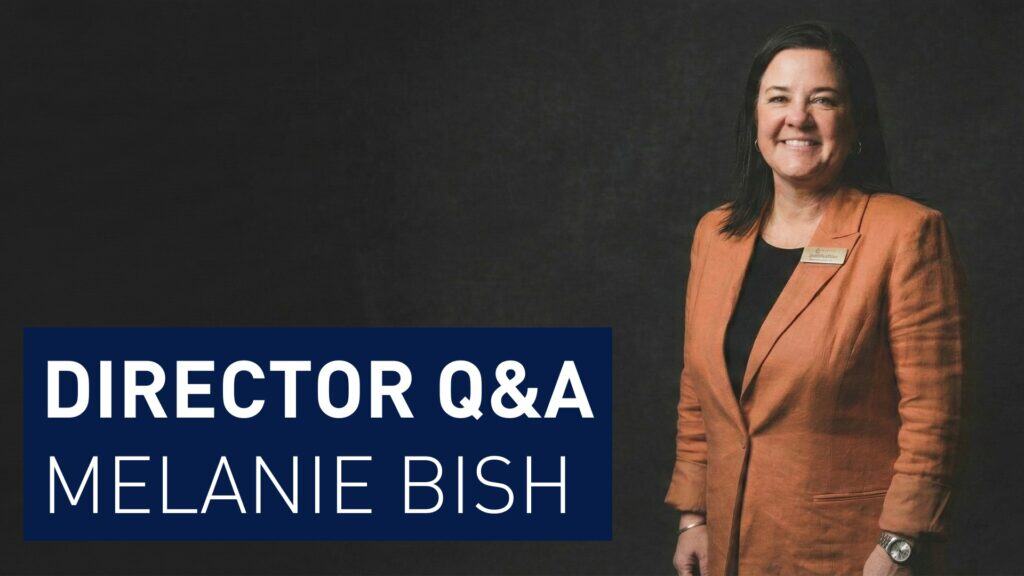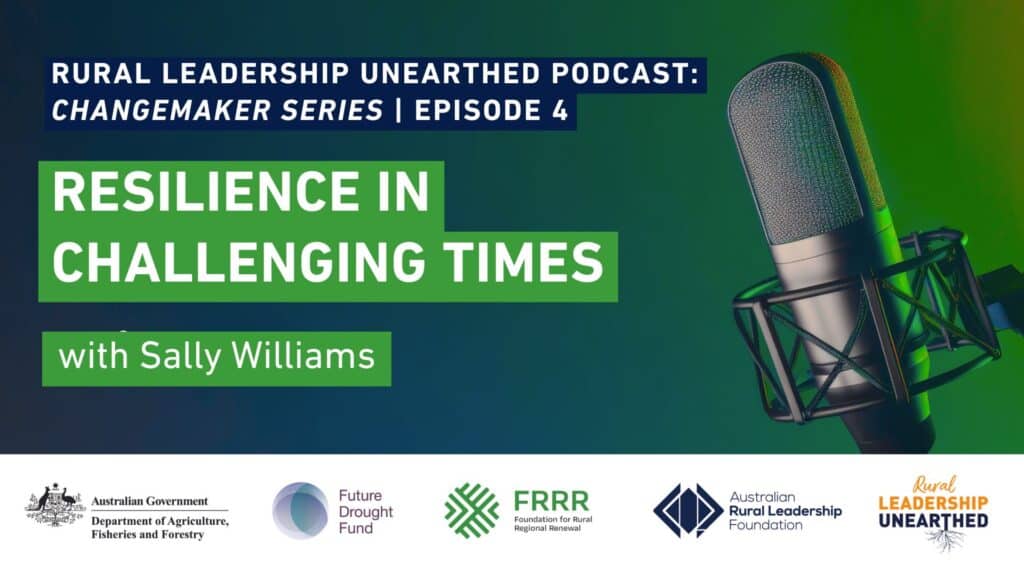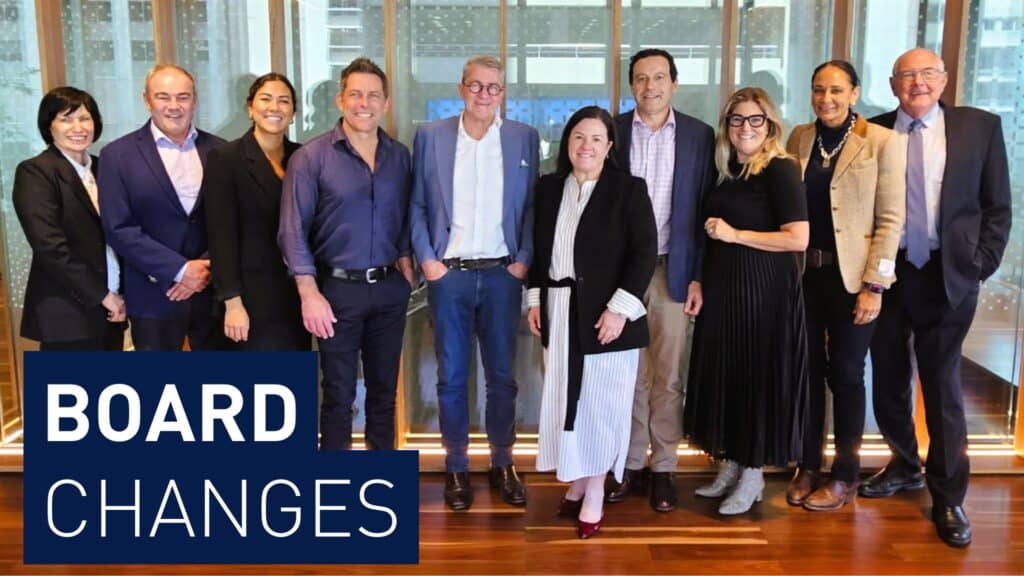Abby Brooker laughs recalling her expectations that the 2024 TRAIL Emerging Leaders program was going to make its 16 participants “starving and a little bit angry”. She knew the reputation of Australian Rural Leadership Foundation programs for taking participants outside their comfort zone, and expected to be tested while immersed in the bushland of Namadgi National Park.
What followed was in fact seven transformative days in a distraction-free setting perfect for learning and connection with other emerging rural leaders.
“My cohort clicked so quickly, it was like we’d known each other for years,” Abby says. “It was supportive and open and a great place to share things.”
Abby is a young-gun of the feedlot industry; passionate about her role as the livestock breeding manager at Whyalla Feedlot in Texas, Queensland. Growing up on her family’s cattle property in Casino, NSW, she knew she wanted a career in agriculture, but didn’t know what that would look like.
After studying Agricultural and Resource Economics at the University of New England, she saw a job opening for a trainee manager with NH Foods’ Whyalla Feedlot and jumped into the first of a succession of roles where no two days have ever been the same.
Indeed, Abby squeezes in a phone call about her TRAIL Emerging Leaders program experience in the middle of a work trip to King Island, Tasmania, where the feedlot has an internal breeder herd. While her job means regular travel and an absorbing palette of artificial insemination, preg testing cows and weaning calves, it is also highly demanding. Abby works a ten-days-on, four-days-off roster, and lives on-site. The relatively isolated population of Texas is about 800, and the social opportunities – especially for a young person – are limited.
“Burnout is a massive thing, as you don’t really stop. It’s big hours and big shifts. You go home, have dinner, go to bed, then get up and go again. You don’t always take enough time to look after yourself.” Abby says.
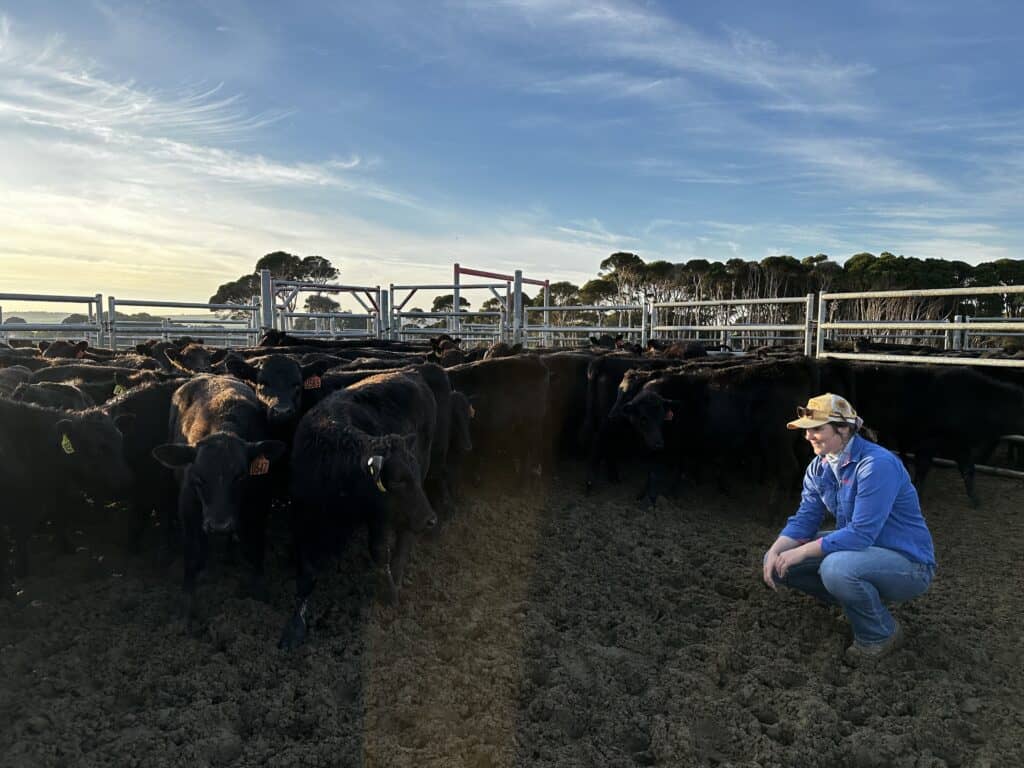
Shared challenges
Through her diverse TRAIL cohort – from industries including cotton, grain, horticulture, poultry, exports and health – Abby realised there were common issues across the board. Burnout was one of them, along with a shortage of skilled workers and the issue of social license.
“A major thing I took away from TRAIL is the need to take some time for oneself, whether in a day or a week … You can’t perform for your team if you’re not caring for yourself. Being cranky and tired means you’re not able to give 100% for the people you’re leading.”
Abby is just 26 but has consistently managed teams in her four years with Whyalla Feedlot. Leadership is not something she’s consciously sought, so much as something that has followed her from school and sporting contexts into the workforce.
“I think I’m quite empathetic and listen and understand where people are coming from. I’m respectful. I make sure everyone knows what they need to do … I won’t ask someone to do something that I’m not willing to do myself.”
She learned from the “maturity and experience” in her TRAIL cohort, while imparting her insights as a young person in agriculture.
“I learned I need to back myself and have a bit more confidence. I learned to trust that what I’m thinking is worth saying.” Abby says.
The gift of switching off
Throughout the TRAIL program, which involves a five-day outdoors component, and two days in a residential setting, Abby was keen to spend time in nature and learn what others were experiencing in their industries. But the program’s impact was more profound than expected.
Just prior to starting TRAIL, Abby experienced a complicated end to a long-term relationship, which destabilised almost every aspect of her life.
“I was lost and torn on just how I was going to get through it, I was really struggling,” she says.
“TRAIL was an opportunity to hand over my phone and go bush with a lovely supportive group of people and ‘switch off’. It helped me completely change my head space and remotivate me.”
Through this well-timed “fresh start”, Abby found space to re-evaluate what matters to her and what values are most important. She returned to work in a vastly improved headspace.
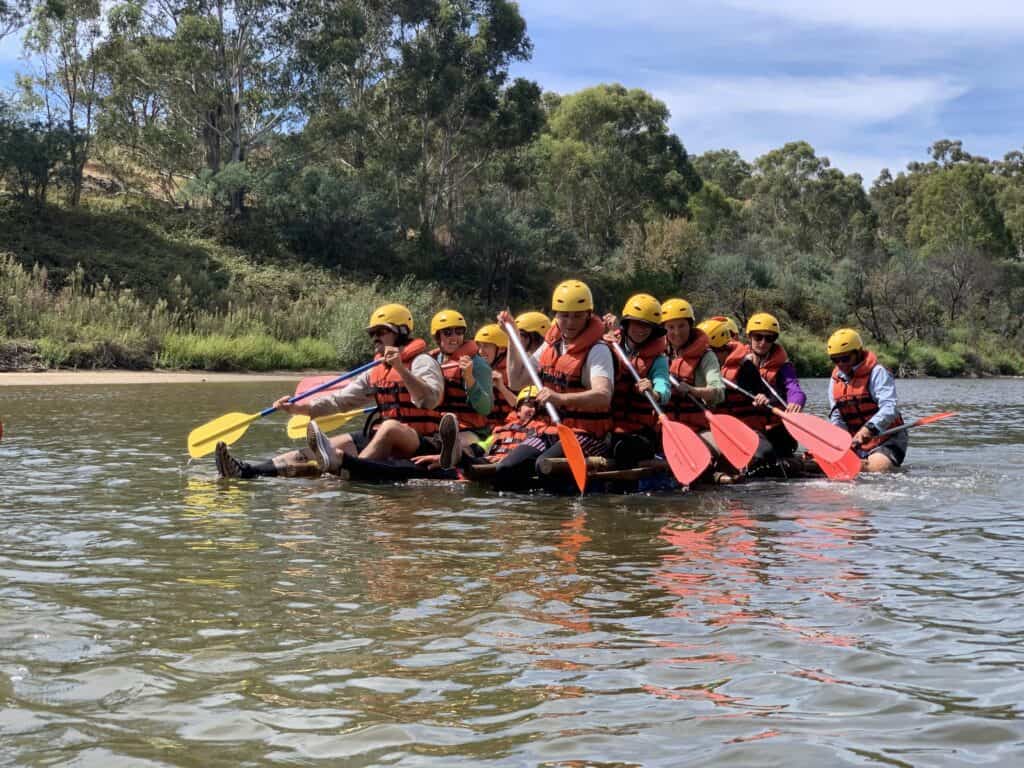
Committed to a future in feedlotting
While public perception of feedlots is an ongoing issue, Abby’s discussions about social license with her TRAIL cohort reinforced the importance of advocacy and sharing information about her industry.
“Feedlots cop a lot of scrutiny, but my experience has shown me that our quality assurance standards and systems mean everything is structured to get it right. We’re in the process of expanding to about 75,000 head, and we have to keep track of the history and wellbeing of every single animal in that space.”
And while there are perennial challenges around work-life balance, Abby is right where she wants to be.
“I’ve found my passion in the livestock breeding role. I love seeing the calves growing out and the AI results; getting a good preg test rate and seeing animals happy and healthy and calm and easy to handle. I get to follow each animal through its life.”
There is a good balance of women among the 100-strong team working at Whyalla, and Abby has found the industry welcoming and supportive. She was moved to receive the backing of her employer to take part in TRAIL.
“People are often sponsored on TRAIL by their industry, but having my work directly sponsor me to do the program was amazing,” Abby says.
“I’m so grateful, and I was pretty shocked by that investment in me. It’s quite humbling.”
From TRAIL, she has taken a renewed determination to keep learning in her job and provide opportunities for her team to do the same.
“You can’t expect to go forward if you don’t learn things well first.”
And in just seven days she has gained life-long connections.
“Being a part of this group of 16 people makes you think about the bigger picture. That network is something I take with me. Without that, you don’t go as far, and you never know when you might need to call on some of that knowledge.”
